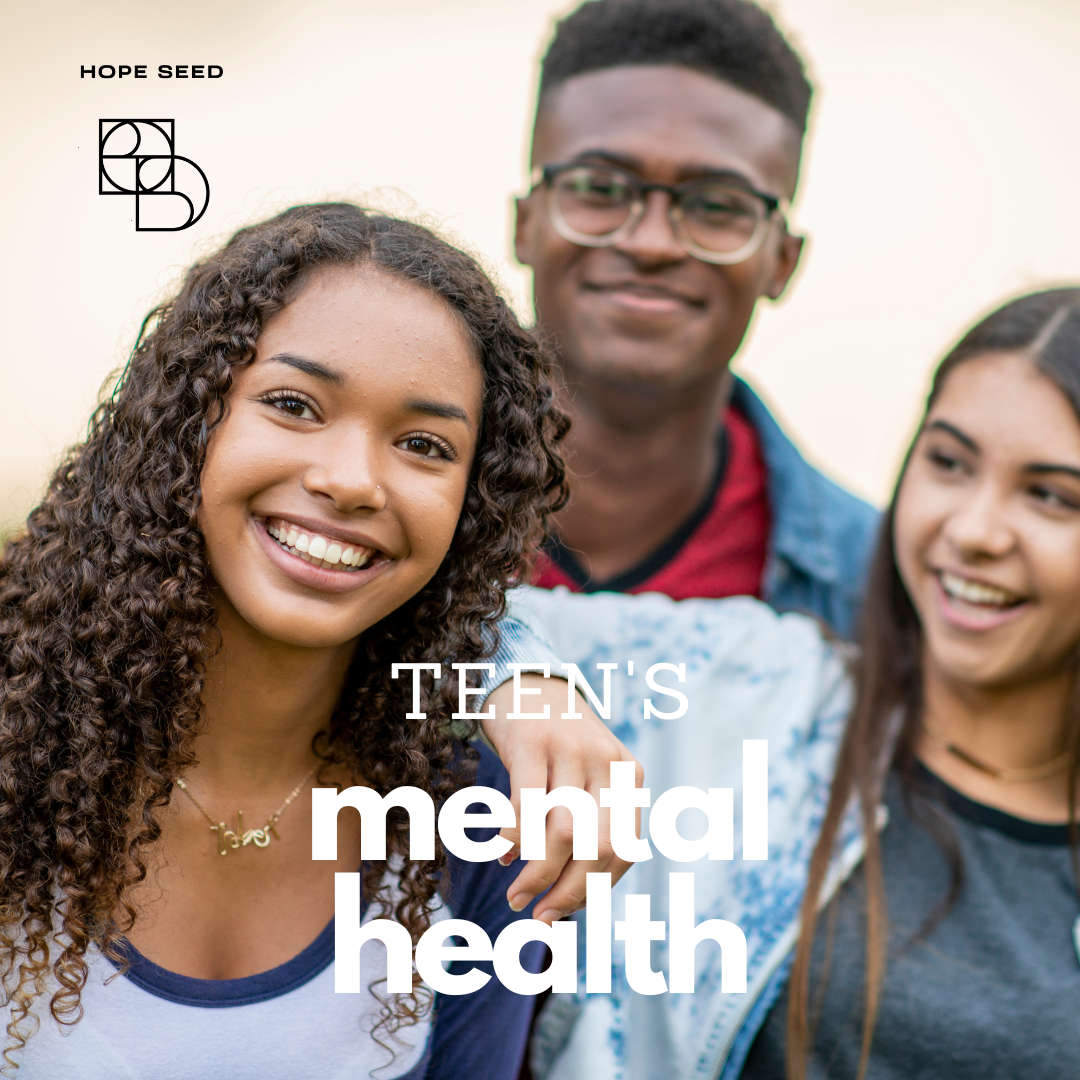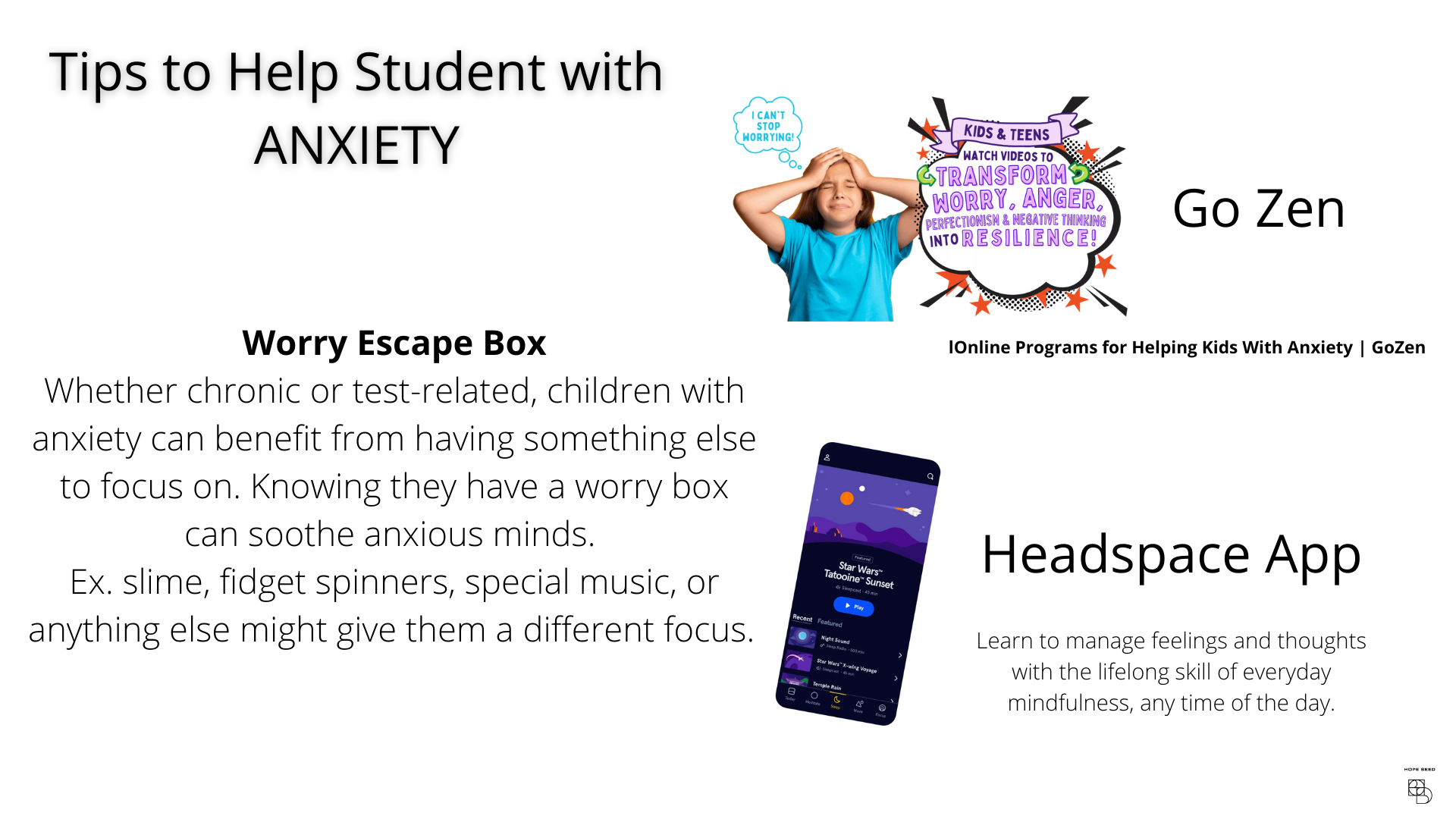Understanding and Helping Your Teen
Call Us Today and Let Hope Seed Help
832-257-3778
Depression
Teens with depression may:
Seems distant. Has closed off emotionally to family and friends.
Spends a lot of time behind closed doors.
Seems uncharacteristically irritable and angry. Loses it over little things.
Often lashes out in anger, including physically.
Talks about feeling stupid, worthless, or hopeless.
Thinks one bad outcome means everything else will be a disaster, too.
Obsesses over shortcomings.
Feels hopeless about the future.
Is acting out with risky behavior.
Has had dramatic changes in daily habits. Might start to binge on junk food or skip meals.
Symptoms of Anxiety in Teenagers
Recurring fears and worries about routine parts of everyday life
Irritability
Trouble concentrating
Extreme self-consciousness or sensitivity to criticism
Withdrawal from social activity
Avoidance of difficult or new situations
Chronic complaints about stomachaches or headaches
Drop in grades or school refusal
Repeated reassurance-seeking
Sleep problems
Substance use
Anxiety
Definition of Anxiety
a feeling of worry, nervousness, or unease, typically about an imminent event or something with an uncertain outcome:
"he felt a surge of anxiety" ·
desire to do something, typically accompanied by unease:
a mental condition characterized by excessive apprehensiveness about real or perceived threats, typically leading to avoidance behaviors and often to physical symptoms such as increased heart rate and muscle tension:
Causes of Anxiety
Anxiety is not always related to an underlying condition. It may be caused by:
Sensory issues
Fear of mistakes/getting things wrong
Unplanned/Unprepared changes
Demands around social interactions
Unpredictable peers
Isolation
Low Self-esteem
Cognitive demands
Environment
Poor relationships
No trusted adult/peers
Bullying
Unpredictable schedule
Unsure of when they will return home
Parental pressure or expectations
Sibling competition
Suicidal Ideation
Teen Suicide, Prevention, and Parent Resources
HOPE SEED SUPPORT CENTER WANTS TO STOP SUICIDE FROM HAPPENING, BUT THERE IS MUCH WORK TO BE DONE TO ACHIEVE THAT.
OUR ORGANIZATION HAS THE TREMENDOUS ADVANTAGE OF YEARS OF STUDYING AND RESEARCHING BEHAVIORS, FINDING THE MISSING LINKS, AND EVEN RECOGNIZING WAYS TO FORESEE THESE HEARTBREAKING TRAGEDIES.
WE WILL WORK TIRELESSLY TO BRING AWARENESS TO THE PUBLIC, TO WORK WITH SCHOOLS AND CHURCHES, AND TO BRING HOPE TO INDIVIDUALS WHO HAVE LOST THEIRS ALONG THE WAY.
*IF YOU THINK YOUR CHILD IS SUICIDAL, FEELS HOPELESS, ISOLATED, OR DEPRESSED, PLEASE REACH OUT. WE WANT TO HELP.
Parents, are you unsure what to look for or what to do? Watch this video and schedule an appointment with us today. We do counseling for teens, their parents, and families.
Understanding the Grief Cycle
A. Shock (Initial paralysis that comes as soon as a person becomes aware of the event).
B. Denial (As soon as the shock hits, people often try to avoid the inevitable reality of what that means. It is easier to say “it can’t be so”).
C. Anger (Release all the overwhelming emotions that might be bottled up, trying to push them away. People may go through an explosive release).
D. Bargaining (Seeking in vain to find a way out of the crisis and try to bargain out of reality. Believers often try to bargain with God).
E. Depression (Final realization of the inevitable reality of that loss or event in life).
F. Testing (Person begins, though accepted reality, how to go on in life,
G. Acceptance (Person finally discovers a way out of that place and can move on in life).
Teen Grief
• Acting “normal” as if the death did not occur
• Regression
• Trouble falling or staying asleep
• Changes in appetite
• Lacking concentration
• Increased irritability
• Displaying interest in things that are dead
• Changes in academic performance
• Withdrawing/Isolation
• Separation anxiety
• Hearing and/or talking to the deceased
• Feelings of relief, guilt, anger, loneliness, confusion,
sadness, emptiness, anxiety, etc.
The Impact of Social Media Addiction
Please click the link below to shed interesting insight into many trends, like which app is the most dangerous, whether social media addiction is on the rise, whether mental health issues increasing, and more. Check it out below:
Social Media Addiction - lanierlawfirm.com/social-media-addiction/










